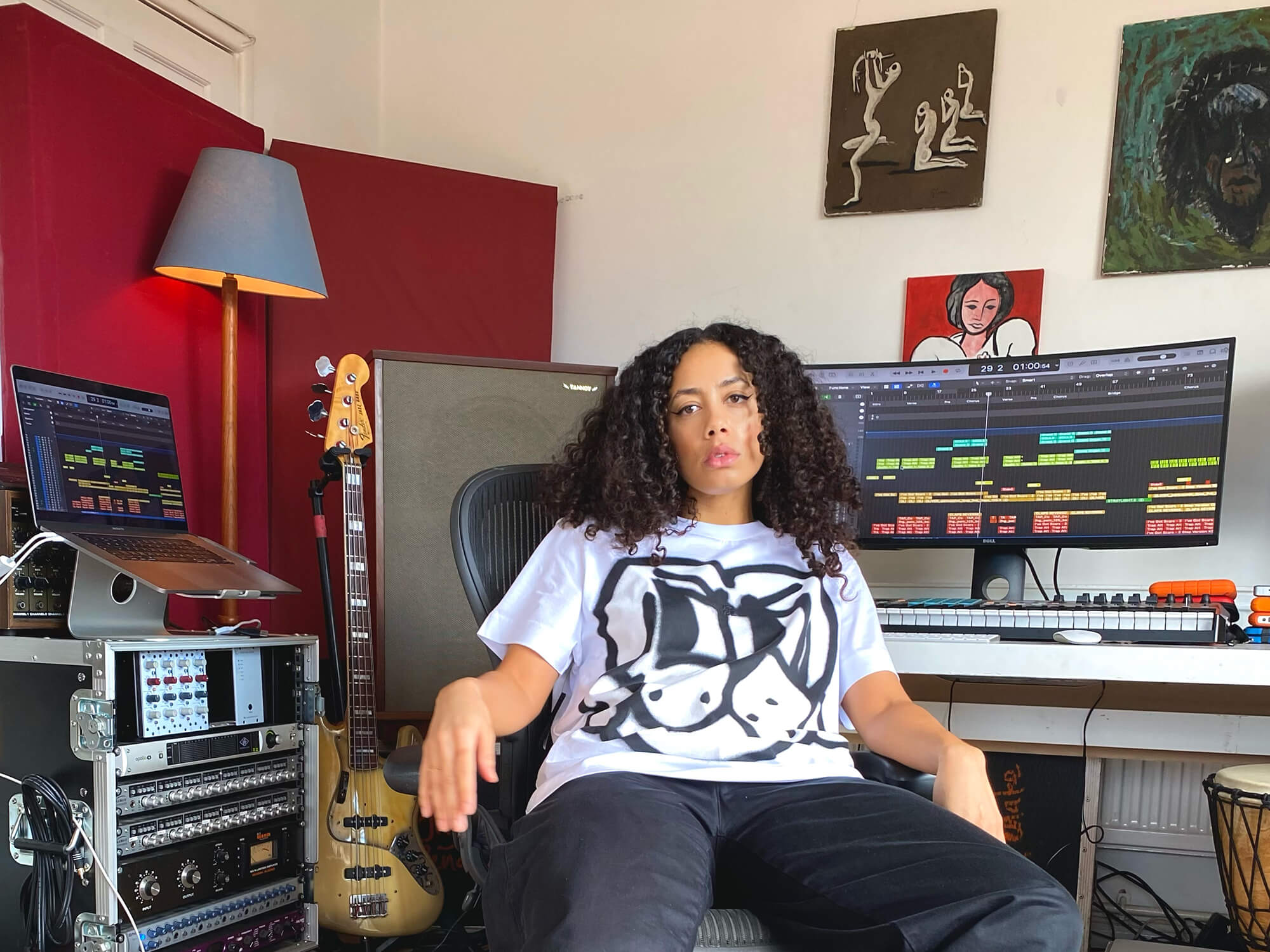
Jayda G: “If you try to sound like someone else, you’ll be chasing your tail”
The Canada-born London-based producer, vocalist and DJ talks about the collaborative process behind the deeply personal ‘Guy’
Jayda G. Credit: Press
In the two months since Jayda G released her deeply-personal second album, the producer, vocalist and DJ has been overwhelmed by how strongly people have connected with it – especially as Guy was pieced together using her late father’s archived home videos.
- READ MORE: Stelios Vassiloudis on the “crazy Reaktor patches” and free plugins he used on ‘Human Damage Human’
“Seeing how it fits in other people’s lives has been cool,” the Canada-born London-based artist says, adding that people have been sharing their stories about parents or friends passing away. This sentiment relates directly to the emotion-filled songs, which lend a gentleness to themes of death and grief. Somehow, Jayda manges to make hard topics (which are not often broached in the club) feel soothing, and not so much of a taboo.
“When it comes to deeper subjects on the dance floor, it��’s usually within the LGBTQ+, Black or Brown community, where you’re coming from a place of oppression; not being seen or feeling you can be yourself within the greater world.” While there are such elements within the record, it’s also bringing Jayda’s personal story to the forefront.
The process of creating Guy was a complete contrast to how her 2019 debut Significant Changes came to life: “I just sat down and made music – that was it,” Jayda recalls, having been entrenched in writing her marine biology thesis at the time.
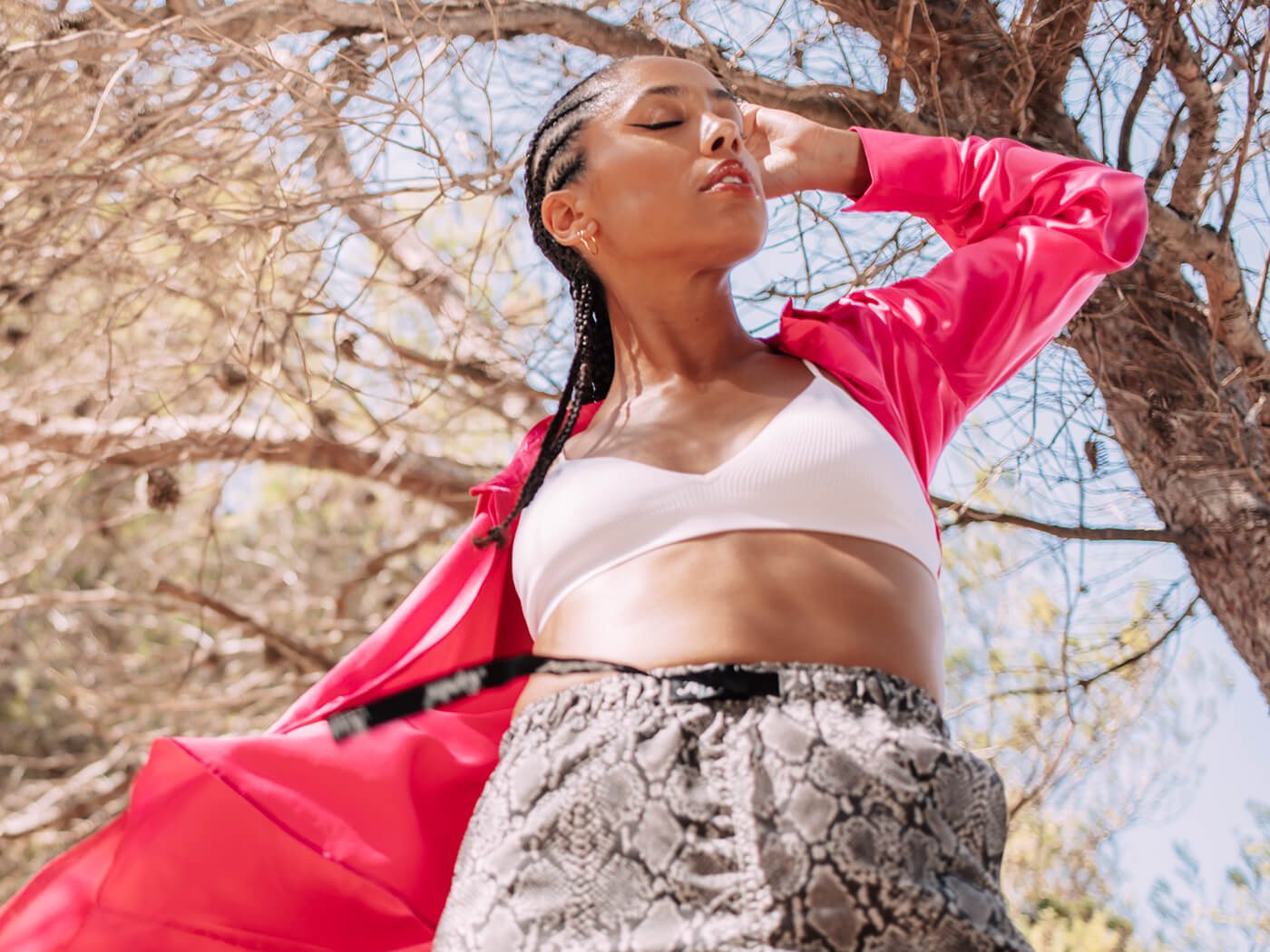
Consequently, although she had the initial idea for Guy all those years ago, “it just didn’t come out that way”. Retrospectively, Jayda is glad; she didn’t feel ready for it then. “The idea of opening up all those videos seemed overwhelming.” When the time came to start digging through, she “wanted to do everything differently” with her second album.
A key development was that she wanted to sing on all the tracks. This led to her having vocal coaching lessons; though it was unfortunate timing as she started training in the early days of the pandemic. “I can carry a tune; I definitely have a good [sense of] pitch and I’ve always had that,” she says, citing the fact that she played the violin throughout her childhood.
“I just wanted to know how to do it properly and improve,” she adds. “I knew I could get better and I still have so far to go in terms of singing and my vocal training.”
Moreover, Jayda loves to learn. “I don’t like being stagnant,” she explains; “I like biting off more than I can chew, to the detriment of everyone around me,” she laughs. Surrounding herself with people who also believe they can do it all means that the mindset comes naturally to her.
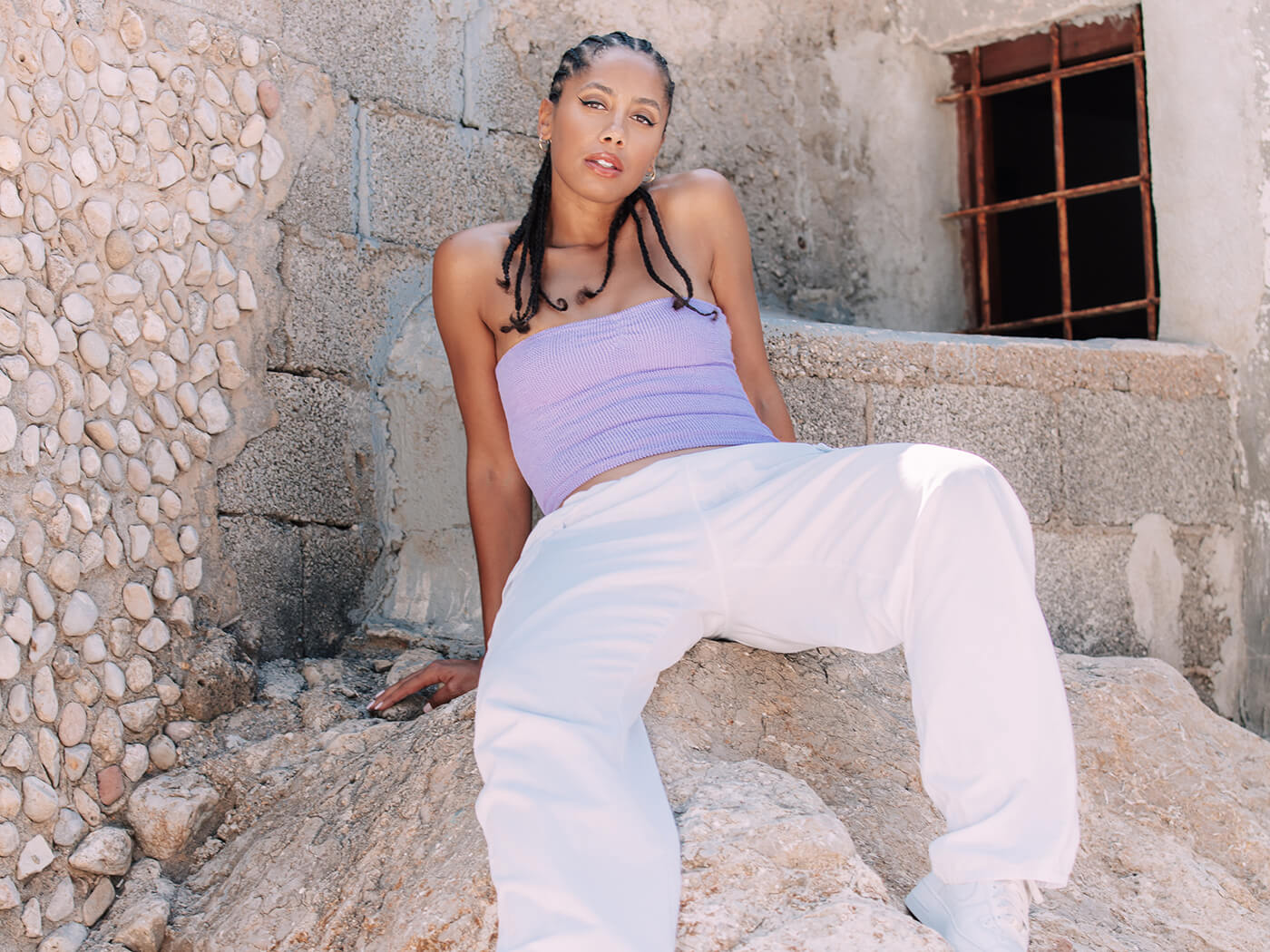
Jayda was also keen to write with other people for the first time, having done everything herself for her self-produced debut. “I really didn’t want to do it alone, and I wanted this album to be like Jayda 2.0,” she says. “I wanted it to be on another level, sonically,” she adds. This meant working with other people, including singer-songwriters: “I know my limitations, and there are so many people out there who have been doing this much longer than I have,” she explains. “It’s important to have humility around that, and it’s more fun working with people.”
However, when it came to finding collaborators, Jayda wanted to connect with them first in the sensitive subject matter.
“I didn’t want it to be really serious,” she recalls, having learned that some singer-songwriters and producers are “just not able to go there – and that’s okay”. After much trial and error, she worked with several “wonderful songwriters” who understood the concept.
When it came to the production of the album, which she had mostly completed by herself, Jayda “needed help to get it across the line”. This led to her working with British Torn on the Platform musician Jack Peñate, who counts Adele as a close friend and collaborator; he has also worked with the legendary David Byrne. Having co-produced her album, Jayda recalls that “Jack pulled it all together for me”. One of the first people he worked with in a producer capacity, she says “we took a chance on each other in many ways and it turned out to be something really beautiful”.
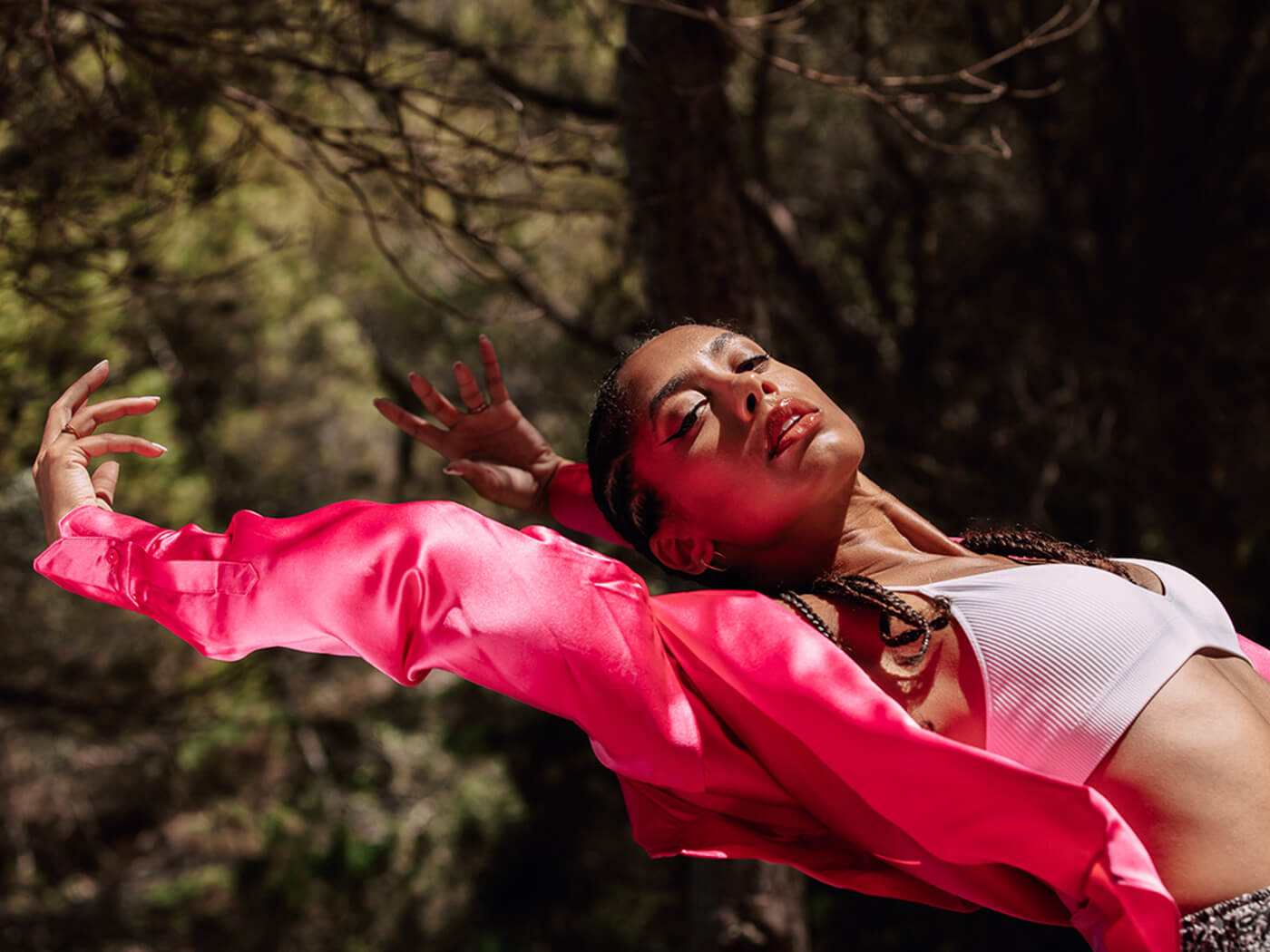
Setting a modest two-month deadline to have the album finished, the pair spent every day together, which Jayda now says was “kind of ridiculous”. While commuting to his studio, she listened to Janet Jackson’s 1989 album Rhythm Nation 1814 daily and became obsessed with its production: “Jimmy Jam, and Terry Lewis; I love all of their productions and, sound-wise, that album is so good at having a stronghold in dance but also leaning to the pop and R&B world”.
While immersing herself in her own work was a “wonderful process”, such intensity took her back to the years when she worked on her thesis. “Whenever you work on something for a long time, you can’t see straight. You’re so close to the material that you can’t really see the difference in it and anything; you start wondering ‘what is music?’ she laughs.
With many of the vocal demos recorded at Jayda’s apartment, the rest was done at Jack’s studio. This included the original cassette sounds, such as a tape rewinding, which Jayda says was very intentional – “as a way of bridging time”.
The inspiring thing about writing with Jack, and something that’s really important to her, Jayda says, is his references. “We listen to very similar music, and he’s a collector, especially of vinyl.” Being a researcher herself strengthens these similarities further. “When you’re writing a scientific paper, you need to have your citations, because everything that you’re writing about and your work has to be based on something that has come before, otherwise it’s not relevant.” This approach extends to how the pair worked together. “We were both really open to the process and tried different things,” she says; “he really held space for me”.
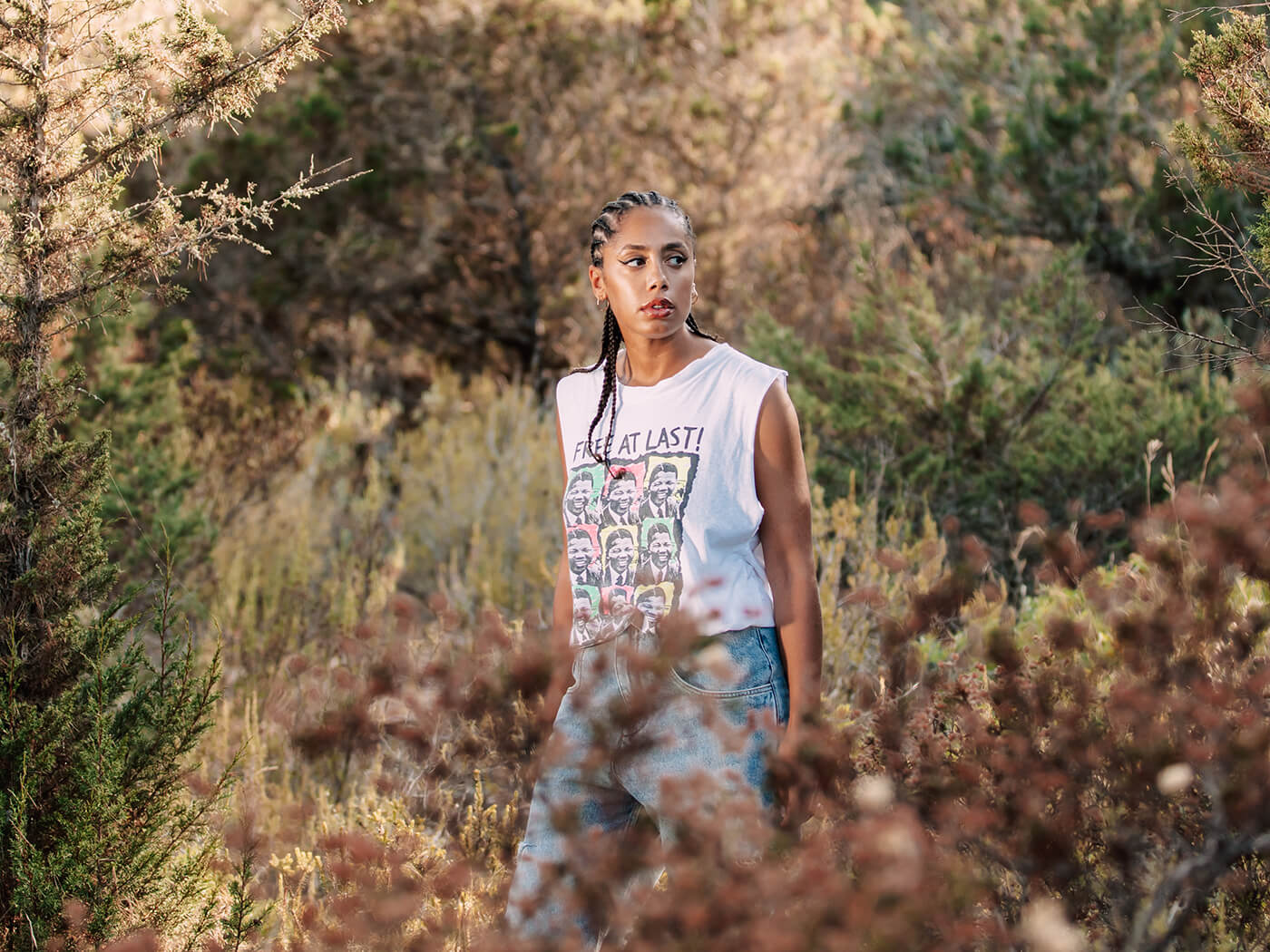
It wasn’t just other musicians who Jayda worked with, though. Making the album turned out to be a real family affair, especially in its earliest stages. With the daunting task of sifting through 11 hours of archive material, her siblings had already begun some of that work.
“It’s funny because we had the idea of working on my father’s tapes at the same time, in 2018, even though none of us had talked to each other about it,” Jayda says. Handily, her brother had got to it first, having created a documentary based on his experience around grief after their father’s passing; this also involved him digitising all the archive videos – a true repurposing of old technology.
Also helpful was that her sister, a TV producer, had transcribed, categorised and highlighted important parts of the videos to help her brother get the film off the ground. “Every bit of material was put into digestible pieces, which was amazing,” Jayda says, adding that her sister’s laughter or voice can be heard on the album as she interviewed Guy for the home movies two decades ago; “she’s very much a part of it”.
Finding the original videos and watching them to find the audio within the film further aided Jayda’s songwriting – “because everything was written down; we were literally pulling direct quotes from my father”. Also helpful was having his old journals; instead of just reading them, she would type the words out as a form of connection. “That was a real process,”’she recalls; “downloading all this information from his life. Emotionally, it was very hard,” Jayda says. “To get through it, process everything and sit with all of it. Also, it was during the pandemic, so what a time to sit with yourself,” she says with a laugh.

Something that eased Jayda’s mind during lockdown, despite being “incredibly nerve-wracking”, was a remix request for Taylor Swift’s track Anti-Hero. Aware that she had to impress the Swifties, she asked her “super-pumped” tour manager what stood out most about the original. “I wanted to emphasise that, rather than take things away”.
Although the Taylor remix was a huge moment, Jayda still has a dream list of collaborators: Beyoncé, Rihanna (“I’ll take either”) and “great songwriter” Sampha: “I love that he’s so emotional with his work, which is something that I try to do, and he has a foot in the dance music community from his earlier work with SBTRKT. That would be a really big deal.”
As someone who has managed to stay true to herself despite reaching such lofty heights (Jayda’s also remixed tracks by Dua Lipa and The XX’s Romy), her biggest tip for aspiring DJs and producers is to “stay grounded and to yourself: knowing the things that you love.
“That will set you apart from everybody else. If you’re trying to sound like someone else, you’ll be chasing your tail and feel like you’re not enough”. This, she ponders, is “probably the biggest issue within the music industry in general. If you can stay true to what makes you feel good and listen to that voice, that’s the key to everything – and life in general.”